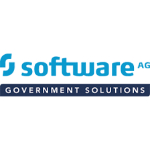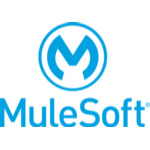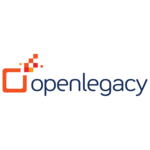TechnologyCounter provides genuine, unbiased real user reviews to help buyers make informed decisions. We may earn a referral fee when you purchase through our links, at no extra cost to you.
List of 15 Best API Management Tools
Showing 1 - 15 of 48 productsAWS Cloud9 is a is a cloud-based integrated development environment (IDE) developed by Amazon Web Services. With its user-friendly interface and seamless collaboration tools, Cloud9 allows developers to code, build, and debug their applications from...Read AWS Cloud9 Reviews
Microsoft Azure is a cloud computing platform that provides a vast range of services for businesses to build, deploy, and manage applications and services through a global network of data centers. With its flexible and scalable solutions, Azure allow...Read Microsoft Azure Reviews
Software AG is a leading provider of innovative software solutions for businesses across industries. With over 50 years of experience, our company has become a trusted partner for digital transformation and process optimization. From integration and...Read Software AG Reviews
TIBCO Jaspersoft is a and innovative business intelligence platform that provides organizations with the tools to visualize and analyze data in order to make informed decisions and drive growth. With its user-friendly interface and robust features, J...Read TIBCO Jaspersoft Reviews
Anypoint by MuleSoft a powerful and innovative integration platform that enables seamless connectivity between applications, data, and devices. With its advanced capabilities, Anypoint simplifies the process of building and managing integrations, all...Read Anypoint by MuleSoft Reviews
SnapLogic is a integration platform that streamlines complex and diverse business processes for companies of all sizes. With its user-friendly interface and scalable solutions, SnapLogic empowers organizations to connect applications, data, and devic...Read SnapLogic Reviews
Dell Boomi is a highly versatile and innovative software that connects various business applications, systems, and processes, making it easier for organizations to automate and streamline their operations. With its cloud-based integration platform, D...Read Dell Boomi Reviews
WSO2 API Manager is a and innovative software that allows businesses to seamlessly manage, monitor, and distribute their APIs to a diverse range of consumers. With its user-friendly interface and robust features, WSO2 API Manager streamlines the API...Read WSO2 API Manager Reviews
OpenLegacy is a software platform that revolutionizes the way businesses modernize their legacy systems. Through advanced automation and integration technology, OpenLegacy seamlessly connects old systems to modern digital environments, enabling organ...Read OpenLegacy Reviews
Fiorano is a leading software company that specializes in providing innovative solutions for businesses of all sizes. With a strong focus on technology and a commitment to delivering reliable is a software, Fiorano has established itself as a trusted...Read Fiorano Reviews
DreamFactory is an innovative software that allows businesses to quickly and easily create custom APIs for their mobile and web applications. With its user-friendly interface features, DreamFactory simplifies the process of building and managing APIs...Read DreamFactory Reviews
Tyk is a API management platform that helps businesses of all sizes streamline their operations and maximize their potential. With its intuitive interface and robust features, Tyk simplifies the management and monitoring of APIs, enabling organizatio...Read Tyk Reviews
Postman Pro is a software that streamlines the process of API development and testing. As a copy writer, I am excited to introduce this powerful tool that simplifies APIs for developers and promotes collaboration within teams. With its user-friendly...Read Postman Pro Reviews
Workato is a and user-friendly integration platform that connects various apps and automates workflows to optimize work efficiency. It offers a seamless experience by eliminating manual tasks and streamlining processes. With Workato, businesses can i...Read Workato Reviews
BetterCommerce is a e-commerce platform that is transforming the way businesses operate in the digital world. With its user-friendly interface features, this software is designed to streamline online transactions and enhance customer experiences. Fro...Read BetterCommerce Reviews
- What Is API Management Software?
- Top Reasons Why Businesses Need API Management Software?
- What Are the Top Key Features of API Management Software?
- What Are the Top Benefits of API Management Software?
- What Are the Steps to Choose the Right API Management Software?
- What Are the Types of API Management Software for Different Industries?
- What Are the Technology Trends for Best API Management Software?
- What Are the Deployment Options for API Management Software?
What Is API Management Software?
API Management software, also known as an API Platform, is utilized to furnish a safe and cohesive platform to expose APIs to external developers, partners, and employees. The program encompasses a range of capabilities that serve as instruments for various aspects of development, organization, deployment, maintenance, and the administration of secure API lifecycles.
Top API management tools enable organizations to efficiently oversee their application programming interfaces (APIs), establish access control mechanisms, monitor usage patterns, evaluate usage data, and implement rate limitations tailored to various user categories.
Furthermore, it enables a corporation to establish and regulate access to its application programming interfaces (APIs) by implementing authentication, tokenization, and several other security techniques. The utilization of the best API management tools enables companies to enhance the caliber of their application programming interfaces (APIs) and maintain their uniformity across diverse platforms and collaborative entities.
API manager software is a valuable tool for companies to generate revenue from their APIs through the establishment of price structures and the implementation of authorization processes for user charges.
Furthermore, it facilitates the advancement of microservice architecture, hence enhancing code reusability and minimizing the burdens associated with application development and deployment. Software can be utilized by developers to efficiently generate reusable components, incorporate services, and establish connections between resources.
In general, the API management platform offers a comprehensive and secure integrated platform to effectively manage APIs and their respective lifecycles. This tool facilitates efficient API access management, enhances API performance, supports monetization endeavors, and enhances the overall service quality.
Top Reasons Why Businesses Need API Management Software?
1. To provide a secure gateway that effectively manages the visibility, scalability, and usability of application programming interfaces (APIs) within the company.
2. To effectively handle several iterations of identical application programming interfaces (APIs) and regulate their accessibility to various applications, a comprehensive management system is required.
3. To maintain uninterrupted availability and high service standards, it is imperative to actively monitor and assess the utilization and efficiency of application programming interfaces (APIs).
4. To facilitate the testing and utilization of application programming interfaces (APIs), the implementation of a self-service portal is proposed. This portal will serve as a platform for developers to independently access and evaluate the APIs.
5. To facilitate a streamlined and effective method for overseeing access management, which establishes the necessary security prerequisites for every Application Programming Interface (API),
6. To enhance the security of APIs, it is imperative to implement measures that effectively mitigate potential threats, including but not limited to distributed denial-of-service (DDoS) attacks, SQL injections, and Cross-site Scripting (XSS) assaults.
7. To facilitate a proficient development process, it is imperative to furnish developers with an interface that allows them to collaborate and oversee the lifecycle of the application programming interface (API).
8. To establish an ecosystem that facilitates the commercialization of application programming interfaces (APIs), the proposed approach involves enabling developers to acquire access to APIs through a purchasing mechanism.
9. To enhance the incorporation of application programming interfaces (APIs) into pre-existing enterprise systems, some measures can be taken.
10. To streamline the process of incorporating third-party application programming interfaces (APIs) into enterprise-level software applications, it is imperative to implement measures that facilitate integration.
11. To optimize the integration of new application programming interfaces (APIs) inside the organizational framework.
12. To facilitate a comprehensive comprehension of API utilization, performance, and analytics, the implementation of a unified dashboard is proposed.
13. To enhance the efficiency and effectiveness of API delivery speed and performance, it is imperative to optimize and upgrade the existing system.
14. To proactively identify and mitigate API risks and vulnerabilities, it is necessary to implement robust security measures and monitoring protocols.
15. To enhance the level of detail in monitoring access control and governance of application programming interfaces (APIs), it is necessary to establish a system that offers granular visibility.
What Are the Top Key Features of API Management Software?
1. Ability to create, deploy, and manage APIs: API management software facilitates the creation, deployment, and administration of application programming interfaces (APIs), so enabling users to make their data, services, and processes accessible to their stakeholders.
2. Security and Access Controls: API management tools offer a range of access control measures, including authentication, authorization, rate restriction, and quotas, to ensure that only authorized users can use the APIs.
3. Gateway Functionality: The best API management tools offer gateway functionality that acts as an intermediary between the API and its consumers. The aforementioned functionality facilitates the establishment of a secure connection, the transformation of messages, and the mediation of protocols.
4. Analytics & Reporting: Top API Management Software offers comprehensive use analytics and reporting capabilities that enable the monitoring and analysis of API performance in great detail. The act of monitoring aids users in the identification and resolution of potential risks.
5. Self-service Portal: The API management platform offers a self-service portal that facilitates developers in the exploration, testing, registration, and utilization of pertinent APIs straightforwardly and safely.
6. Monetization: Top API management tools enable the monetization of APIs through the provision of diverse pricing and invoicing options, hence facilitating the generation of revenue from APIs.
7. Version Control Functionality: API lifecycle management tools offer version control functionality that allows users to modify their APIs without impacting the foundational structure.
8. Support for Multiple Protocols: The best API management tools facilitate the utilization of many protocols, including SOAP, REST, and XML-RPC, among others, thereby providing developers with convenient access to the APIs.
What Are the Top Benefits of API Management Software?
The top benefits of API Management Software are:
1. Enhanced Security: Top API Management Software plays a pivotal role in bolstering the security of applications by enabling the establishment of secure pathways for accessing data and services. One of the primary benefits of implementing security measures is the protection of API activities and data from unwanted access, theft, and misuse.
2. Improved Scalability: The best API management tools facilitate the rapid and seamless expansion of organizational resources to effectively address diverse user needs. The expansion of capabilities and the ability to accommodate a larger user base with limited resources are advantageous for enterprises.
3. Streamlined Communication: The API management platform facilitates seamless communication between enterprises and their customers and partners by providing a unified platform. The simplification of communication processes and the reduction of bureaucratic complexities are observed.
4. Improved Performance: Top API management tools play a crucial role in facilitating the deployment of novel features and services, hence empowering enterprises to enhance the efficiency of their applications and processes. This aids in the optimization of application performance.
5. Reduced Costs: The best API management software is an economically advantageous solution, as it facilitates cost savings for enterprises in terms of both development and maintenance expenditures.
6. Comprehensive Reporting: The API management platform facilitates the monitoring, analysis, and reporting of application performance for businesses. This facilitates the monitoring of usage trends and enhances comprehension of client behavior to a greater extent.
7. Monitoring: The best API Management Software enables the timely monitoring of application performance, hence aiding enterprises in promptly identifying and resolving any potential difficulties.
8. Flexibility: API lifecycle management tools are a versatile solution that enables enterprises to tailor the platform to meet their requirements.
What Are the Steps to Choose the Right API Management Software?
1. Identify your project objectives: Before choosing the best API management software, it is imperative to ascertain the specific aims that you intend to achieve through the utilization of such software. One should engage in self-inquiry by posing questions such as: What specific issues or challenges am I endeavoring to address? What areas of the existing process would benefit from enhancements?
2. Examine features and capabilities: Evaluate the capabilities provided by various API management tools and choose the ones that align most effectively with the aims of your project. One should examine attributes such as security measures, rate-limiting capabilities, and analytics functionalities for data tracking.
3. Consider scalability options: Consider the potential growth of your API requirements over time. Choose an API management software that possesses the ability to dynamically adjust its capacity to accommodate fluctuations in demand.
4. Evaluate cost and pricing: It is imperative to ensure that one is sufficiently satisfied with the pricing and payment arrangements associated with the best API management tools under contemplation. It is advisable to contemplate several alternatives, such as pay-as-you-go models, subscription plans, and price structures based on usage.
5. Take a test drive: If feasible, it is advisable to experiment with the top API management software by utilizing a complimentary trial or demonstration edition. This will facilitate a more comprehensive comprehension of its functionality and ascertain whether it offers the desired capabilities.
6. Read customer reviews: It is advisable to peruse customer reviews to have a more comprehensive comprehension of their experiences with API manager software. Assess the provided comments to ascertain the extent to which the solution aligns with the project objectives and possesses user-friendly attributes.
What Are the Types of API Management Software for Different Industries?
1. E-commerce/Retail API Management Software: The API management tools in question have been specifically developed to offer online retailers the ability to exercise control and ensure security about the utilization of APIs. This platform facilitates the exposure of enterprises' application programming interfaces (APIs) to developers, enabling integration with third-party applications. Additionally, it provides functionalities for managing and monitoring API usage, facilitating quick growth through the utilization of APIs, and ensuring the security of all transactions conducted via these APIs.
2. Financial Services API Management Software: This particular software for API management facilitates the management, monitoring, and security of APIs for financial services firms, hence ensuring secure data access for mobile applications, web portals, and other software applications. Typically, financial services API manager software encompasses several features, such as integration capabilities for payment and banking systems, mechanisms for detecting and preventing fraudulent activities, as well as functionalities for regulating the rate at which APIs are accessed.
3. Healthcare API Management Software: This particular software facilitates the secure access and administration of healthcare data. The features encompassed in this system comprise robust user authentication mechanisms, advanced data encryption techniques, and efficient access control mechanisms, all of which collectively contribute to ensuring the utmost privacy and security of the data. Healthcare API management solutions encompass the incorporation of regulatory compliance monitoring mechanisms to ensure adherence to healthcare standards such as HIPAA, GDPR, and other pertinent regulations.
4. Travel/Hospitality API Management Software: This particular the best API management tool facilitates the optimization of customer booking, reservations, and other transactions conducted via APIs, resulting in enhanced efficiency and effectiveness. This technology enables enterprises to effectively handle authentication securely, facilitate swift expansion of services, and monitor API usage for invoicing and analytics.
5. Education API Management Software: This particular software for top API management software facilitates the administration of APIs within educational establishments, enabling them to safely exchange data across various platforms such as websites and applications. Furthermore, this feature enables educational institutions to tailor their API access policies and monitor usage for analytics and billing.
What Are the Technology Trends for Best API Management Software?
The utilization of the best API management software is experiencing a surge in popularity due to the imperative for firms to address the escalating need for expedited access and enhanced dependability. The most notable trends in API administration software may be categorized into three primary domains.
1. Automation: The implementation of automation facilitates the creation of a more efficient process for developing application programming interfaces (APIs) and enhances the level of security. Automation facilitates the management of the application programming interface (API) and enables the utilization of novel services, technologies, and functionalities without excessive expenditure of time or resources.
2. Integration: The process of integrating application programming interfaces (APIs) with various tools and technologies is crucial for optimizing API utilization and enhancing operational efficiency. Integration facilitates enhanced accessibility and expedites collaborative efforts, so enabling teams to operate with heightened efficiency.
3. Scalability: The optimal software for the best API management tools offers scalability, enabling enterprises to adjust their capacity under consumption and demand fluctuations. Scalability contributes to cost optimization by enabling customers to allocate resources on demand, hence minimizing the expenses associated with ownership.
In general, the predominant trends in top API manager software revolve around facilitating optimal utilization of APIs by companies, irrespective of their scale and the intricacy of their use scenarios.
What Are the Deployment Options for API Management Software?
The available deployment choices for top API Management software typically encompass on-premise and cloud-based (including multi-cloud) alternatives. The on-premise approach typically entails the installation, implementation, and management of software on hardware located within the organization's premises.
In contrast, cloud choices provide greater ease in terms of scalability and maintenance. In the context of on-premise installations, it is common to install the best API Management software on either physical hardware or virtualized environments. When virtualized, it can be deployed in either a singular instance or a dedicated cluster.
Cloud deployments provide the option to implement API management tools in a single data center, various geographic areas, or a multi-cloud platform. API management tools enable enhanced scalability and agility, albeit at a potentially higher cost compared to the on-premise alternative.
Organizations may opt for a hybrid approach, encompassing a combination of on-premise and cloud deployments. This alternative has the advantage of combining the installation of software on local hardware with the scalability offered by cloud deployments.















